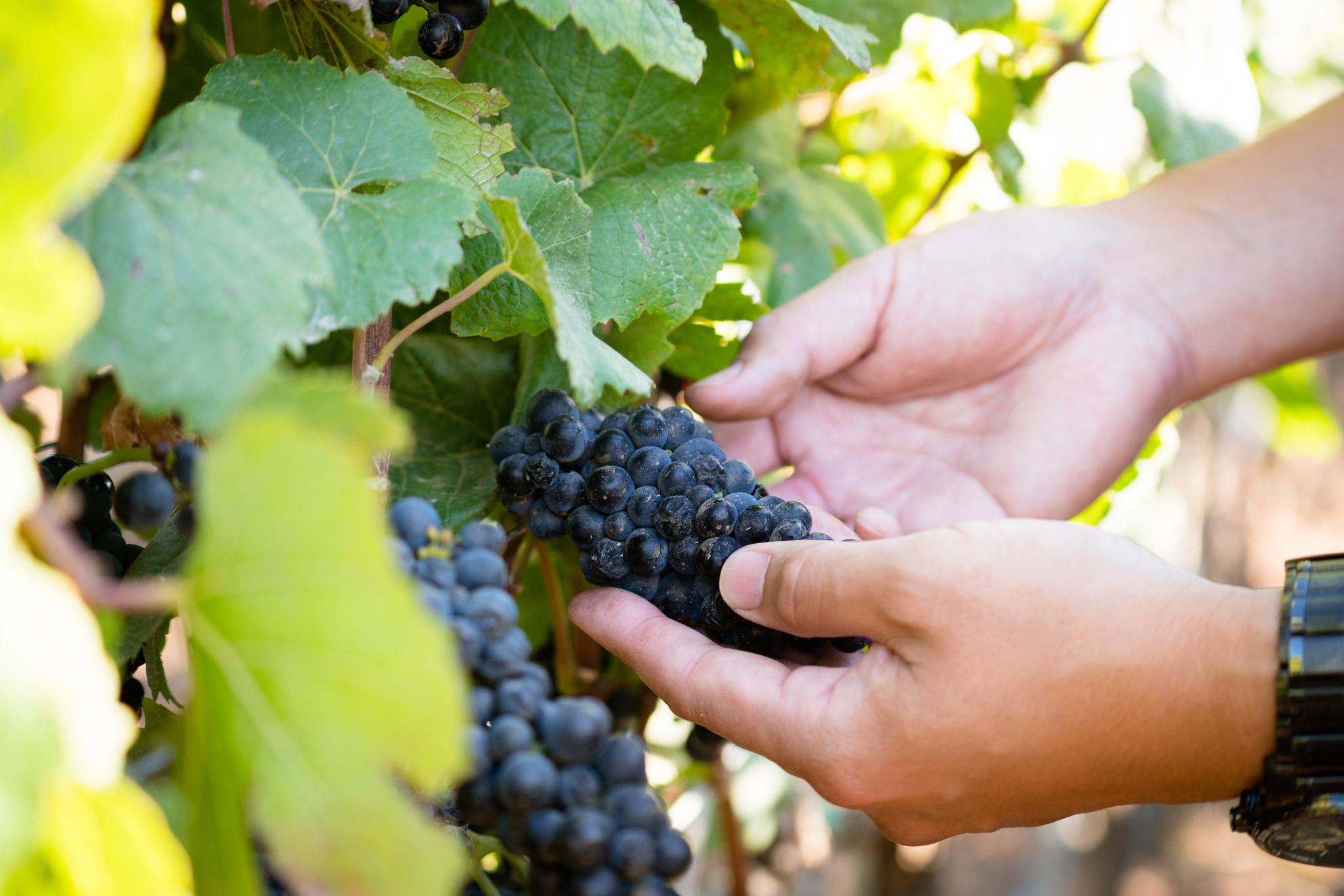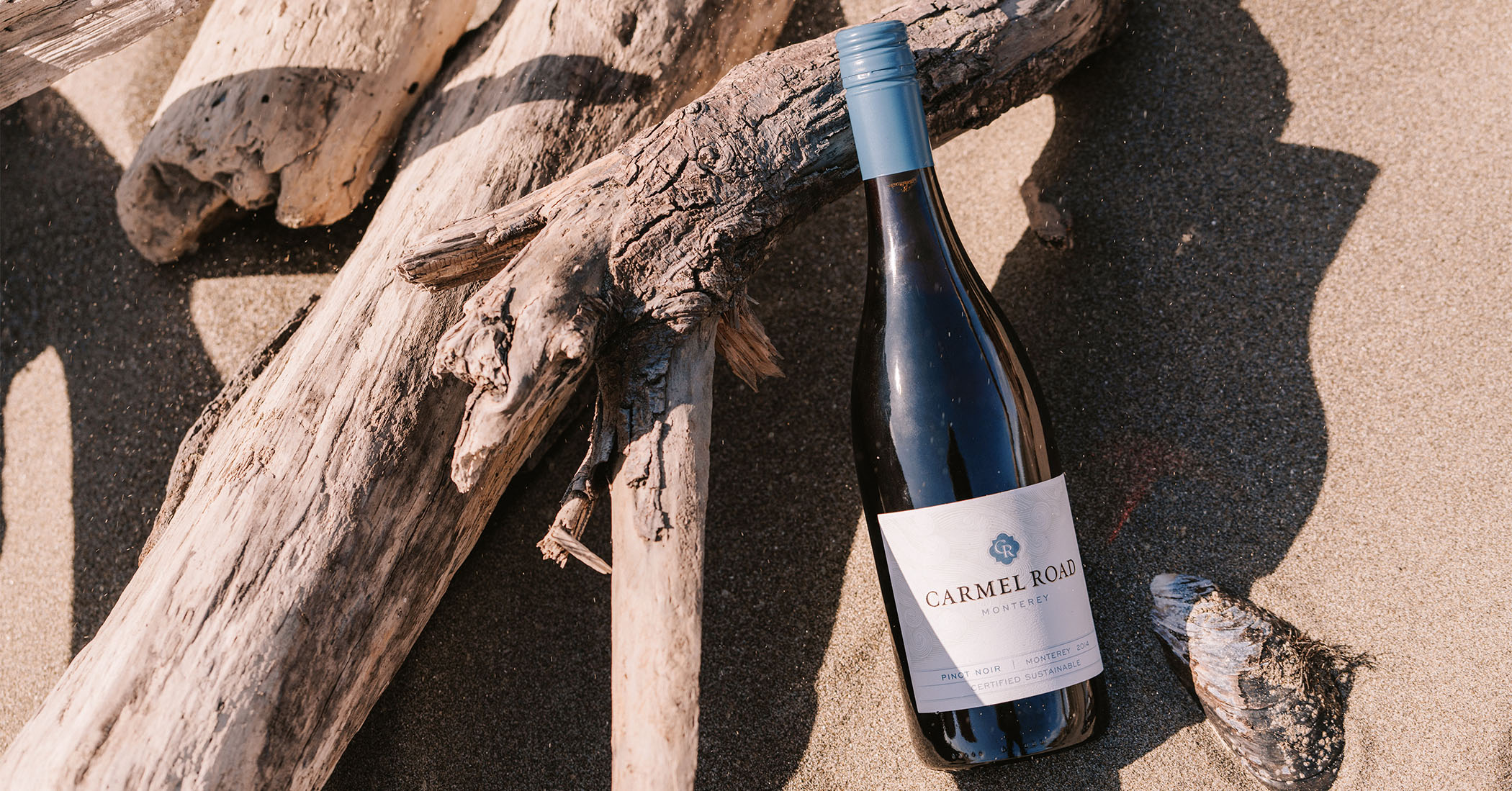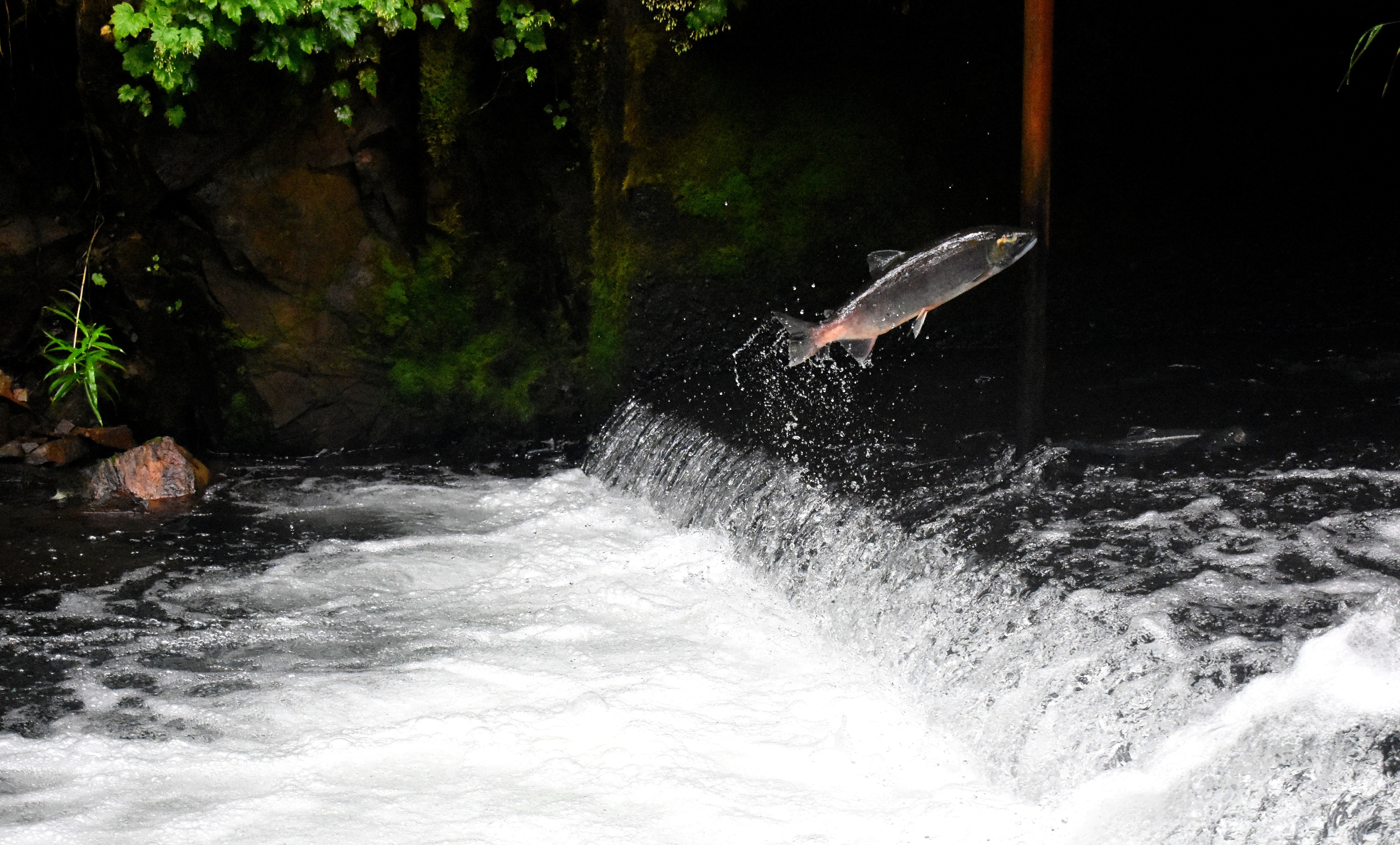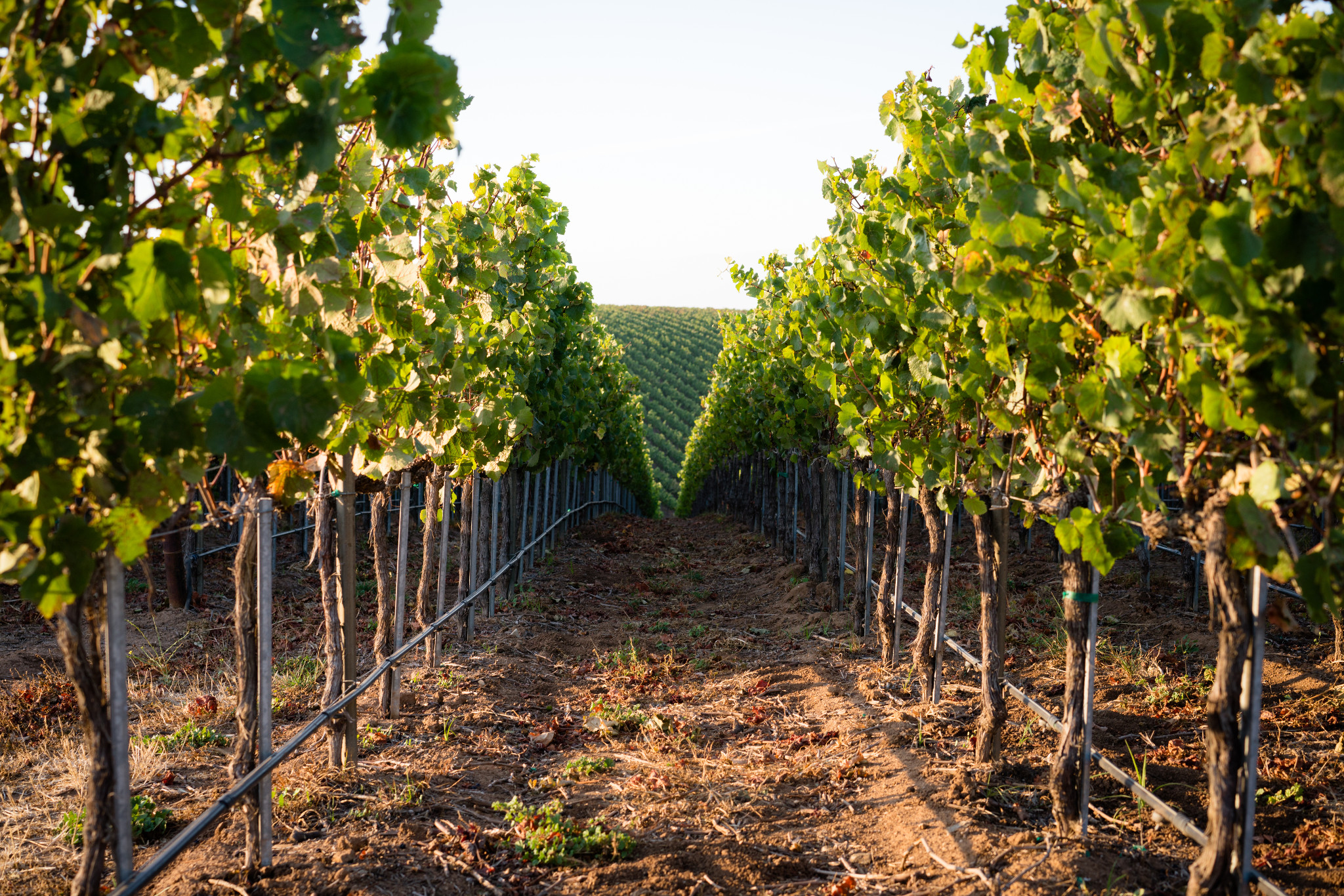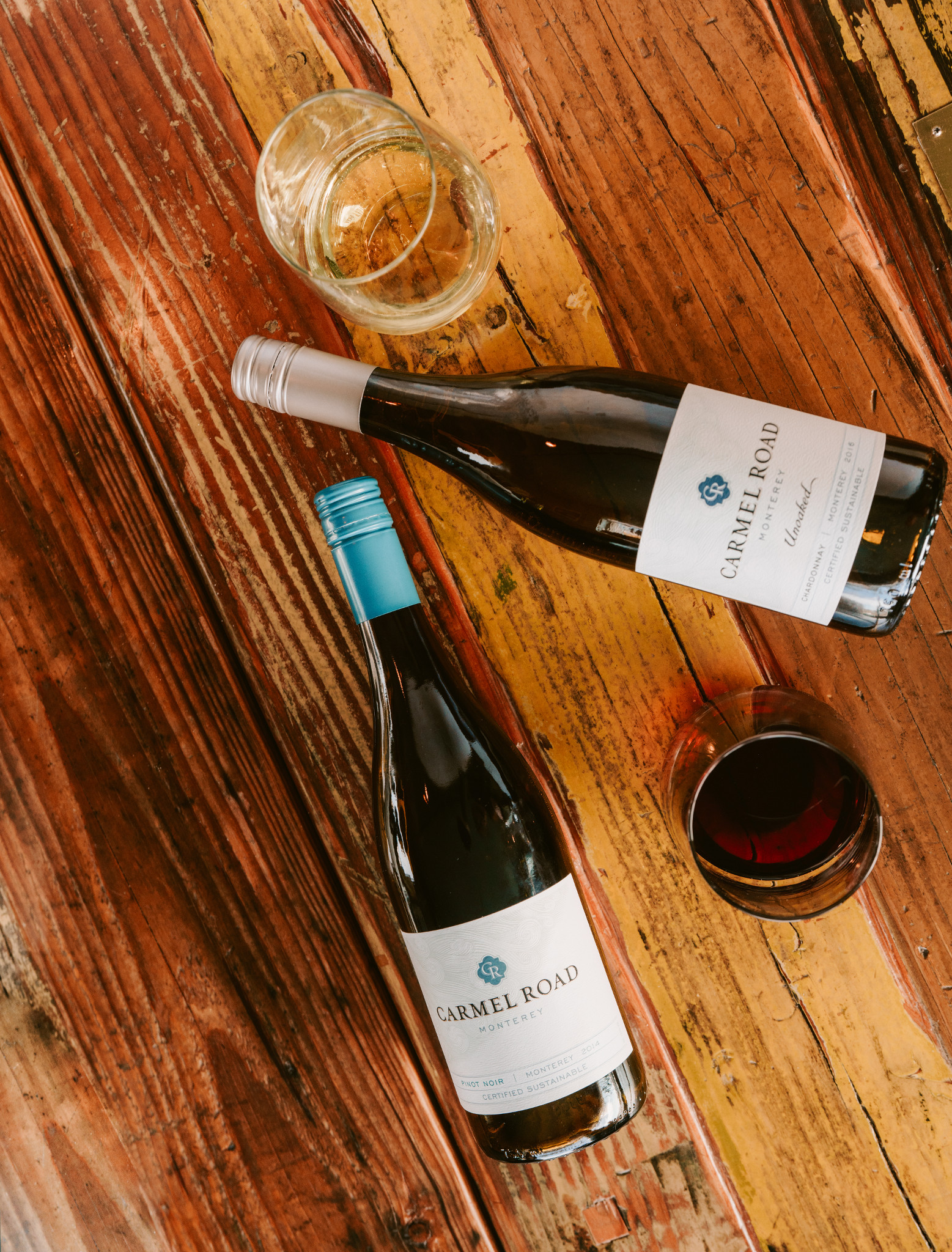Less Water, More Flavor

When wineries conserve water, it's better for the environment and better for the wine.
Carmel Road winery ranks among the most water efficient wineries in the world. While the average winery uses six gallons of water to produce a single gallon of wine, Carmel Road has worked meticulously to reduce water consumption down to about three and a half gallons of water per gallon of wine. Grapes that develop with the minimum amount of water produce more vibrant, concentrated flavors. For Carmel Road, this means our water efficiency allows us to craft the best wines possible.
Conservation for Concentrated Flavors
Wines created from grapes grown with minimal irrigation are not diluted, allowing the true essence of the terroir to shine through. When a vine receives minimal water, the vines grow deep into the ground to find water sources. This process makes the vines heartier and more resilient to drought conditions, and the grapes have more character, fully representing the soil and rocky layers of the region.
When grapes contain less water, the berries are smaller and the flavor is more intense. It is a careful balancing act between encouraging flavor concentration and overstressing the grapes with insufficient water. For this reason, Carmel Road uses a variety of monitoring tools to track the moisture levels to ensure it’s exactly where winemaker Kris Kato needs them for his next vintage.
Water is a Precious Resource
When you buy a bottle of wine, you might not think about the supply chain of grape-to-glass the way you think about the environmental impact of using plastic bags or eating a juicy hamburger. But your wine footprint is just as important as the rest of your diet and retail consumption, especially if you enjoy wine often. Water usage is an essential element to consider when gauging a winery's sustainability efforts, as water is a precious and limited resource.
Worldwide, water usage has been increasing by around 1% annually since the 1980s due to a combination of population growth, socio-economic development and changing consumption patterns. This increasing demand is expected to grow by 20-30% by 2050, yet already much of the world experiences high water stress. Already, over two billion people live in countries experiencing high water stress, and about four billion people experience severe water scarcity during at least one month of the year. Stress levels are expected to continue to increase as demand for water grows and the effects of climate change intensify[1].
In Monterey, California, where our grapes are grown and our wines crafted, water efficiency is a necessary element of the state's survival. Farmers are well aware that water availability will challenge our agricultural community well into the future. Drought and the ongoing impacts of a changing climate place the need to secure future water supply for our vines and communities front and center.
As the demand for water increases, water conservation is a critical part of the overall strategy for managing water resources efficiently. Conserving water in agriculture and viticulture, as well as industrial and residential management, makes more water available to support fish and wildlife and their habitats.
Saving Every Drop
From the vineyard to the glass, Carmel Road Winery is working to make great strides in water management. Check out some of the ways they are conserving, recycling and innovating water use.
Vineyards
Smart water systems are those which provide targeted application of water and use tools to measure the specific needs of each plant. Micro-irrigation minimizes consumption while innovative moisture monitoring technology such as soil probes, leaf porometers, and weather satellites help ensure specific vine stress conditions. With these tools, along with selecting rootstocks which require less water, Carmel Road is effectively propagating the most water efficient vines possible. These practices not only conserve water, but actually produce more concentrated flavors in each grape.
Water-Wise Wineries
Our winery features a closed loop water recycling system which includes rainwater capture and onsite water treatment. Barrel washing represents the second largest use of water in the winery, so we’ve long worked on improving efficiency, with previous innovations allowing us to recycle barrel wash water three times on our automated lines.
Rainwater Capture
The largest use of water at the winery is in cooling towers, which run our refrigeration systems to keep tanks and barrel rooms cool. By rerouting rainwater from our winery rooftops to be reused in our cooling towers during the winter and spring seasons, we can save thousands of gallons of water.
Wine, Beer, and Spirits All Require Water to Produce
At Carmel Road, we continue to try to minimize our water consumption at every turn, in the vineyard and the winery.
As you choose your next wine, consider Carmel Road Pinot Noir or Chardonnay, both of which use minimal irrigation and optimal water efficiency, a win for the planet and for our wines. Salut!

